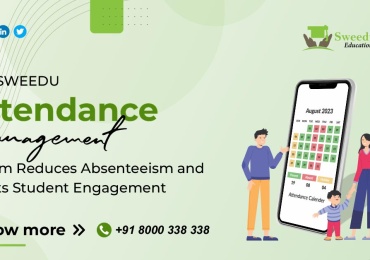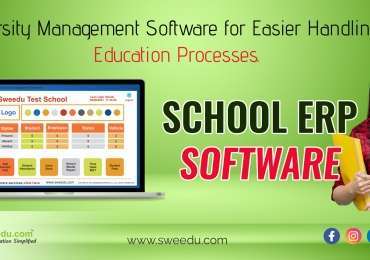
The National Education Policy (NEP) 2020 has introduced a transformative approach to student assessment in India through the Holistic Progress Card. It has been developed by the National Council for Educational Research and Training (NCERT) as one of the constituent units PARAKH (Performance Assessment Review and Analysis of Knowledge for Holistic Development). It will include evaluation beyond the textbook performance of students. Most important it includes many innovative features by which a school can assess students through the Holistic Progress Card (HPC).
What is a Holistic Progress Card?
A holistic progress card is an overall assessment of the student’s growth focusing mainly on their development in studies, behaviour, skills and personality. Rather than a more traditional assessment that weighs only the academic performance in the form of test scores or grades, this gives a more rounded view of the student’s progress. The social, emotional, and extracurricular avenues of development were considered to watch the child’s progress in many directions.
Some of the key features of Holistic Progress Card are:
Multidimensional Assessment: Assessment will evaluate students under cognitive abilities, physical education, skills in the arts and creativity, social competence, emotional development and comprehensively describe unique strengths and weaknesses for all students.
Personalized Feedback Rather than the current tendency to give only grades in numbers, moving towards qualitative feedback from teachers, friends and self-assessment enhances understanding of a child’s learning and development.
Continuous and Comprehensive Evaluation: Unlike traditional end-of-term assessments, the HPC emphasizes its essence in ongoing evaluation through the entire academic year. This provides intervening development in real-time monitoring for the intervention of a student.
Involvement of Multiple Stakeholders: A HPC receives inputs from a teacher, parent and friends. The approach ensures a better understanding of a student in a wider perspective.
Alignment with 21st-Century Skills: Enhances critical thinking, creativity, communication and collaboration will pave the way for the future of a student for the complex system of the world.
Benefits from the Holistic Progress Card:
Parent Participation: Parents will participate in the process of assessment and provide inputs in the development of the child outside the context of the classroom.
Teacher Empowerment: Teachers are equipped with competency-based knowledge for the implementation of HPC, enhancing teacher training and improving teaching practice.
Learner-centric Learning: The HPC promotes a movement from rote learning to competency based learning to meet the holistic objectives of NEP 2020 in practice.
Sweedu’s Modification of the Holistic Progress Card in its ERP Software
While schools move toward this new mode of assessment, the educational technology platforms play an important role in enforcing its entry into the system. Sweedu’s school management system has made it an even easier task for institutions by proactively embedding the HPC framework within its School ERP to simplify assessment, analytics and enhance student holistic progress.
The Understanding of Holistic Progress Card in a Nutshell
Traditional report cards base their judgments on grades and marks for the most part, without paying much attention to other significant developmental areas of the child. On the contrary, the HPC judges students in these domains:
Cognitive skills: Skill related to subject knowledge, reasoning and problem-solving
Social and Emotional Development: It is based on interpersonal skills, emotional intelligence and behaviour
Physical and Artistic Development: It develops better analysis of sports, creativity and expression
Values and Ethics: it analyse the responsibility, discipline and social engagement of a student.
About me section
The All About Me section in the HPC mentions the key details of the student like name, age, interest, and one picture to record and track not only the academic progress but personal, social and emotional development over a period of time.
In this way, a 360-degree evaluation ensures that the students are offered personalised learning paths.
How Sweedu has integrated HPC Framework
In order for Holistic Progress Card implementation by schools to be meaningful and effective, Sweedu has designed a key advanced digital assessment system that is NEP 2020 compliant. The following includes how:
-
AI-Powered Smart Assessment System
Sweedu’s AI powered analytics tracks student progress beyond the scores. It captures behavioural tendencies, co-curricular participation and relations within peer interactions, providing individualized insights for every student.
-
Dynamic Report Generation
Sweedu’s HPC-based reports are dynamic and interactive in nature providing graphical progress trends, Comparative performance insights and actionable feedback from teachers, parents and students.
-
Continuous & Comprehensive Evaluation
Sweedu’s mark card management system offers ongoing and summative assessment, making sure that students are monitored for the entire academic year through daily observations, self-assessments and Project-based learning outcomes.
-
Teachers and Parents Collaboration
Sweedu’s parent-teacher communication portal offer real-time updates about student performance, Progress analytics in detail and Customized improvement plans.
-
Adaptive Learning Recommendations
Based on its insights on the HPC, Sweedu’s intelligence will recommend personalized learning suggestions for e.g. remedial classes in weaker areas, advanced programs for bright students and Skill-based extracurricular activities.
-
Compliance with National Education Standards
Sweedu fully adheres to compliance-based NCERT and PARAKH guidelines in making school transitions to the holistic progress card smoothly and efficiently.
Why Choose Sweedu’s ERP Software for HPC Implementation?
Time Saving: Sweedu’s automated report card management system eliminates the manual report creation.
Insights and Data: AI-powered analytics can analyze learning gaps and suggest customized remedies.
Personalized Learning: A learning roadmap is made for each student considering their strengths and weaknesses.
Easy Compliance: Schools comply with NCERT & CBSE guidelines seamlessly through Sweedu’s integrated system.
Conclusion
Holistic Progress Card is not about enhancing assessments, it is more an attempt to modify educational setups to value the journeys and potentials of the individuality possessed by students. The integration of Sweedu’s Holistic Progress Card is a landmark in the NEP 2020 assessment to reform schools through technology, AI-driven analytics and continuous evaluation, Sweedu equips the educator and parents to nurture the overall development of students in a holistic way.
Experience the future of education with Sweedu’s AI driven holistic progress card, Start a free demo today.
BIO
Sweedu is education Management software that promotes holistic education with personalized learning insights in its smart ERP platform to aid teachers, students and parents. Through AI-based assessments, teachers and parents collaborate with each other supporting the academic, emotional and social development of each student in compliance with NEP 2020.
FAQ – Holistic Progress Card
How can parents use the holistic progress card to support their child’s growth?
Parents can look at the holistic progress card to see areas of strength and areas where students could/should be helped. They can use the personalised reports as a beginning point to discuss strengths, challenges, and strategies for improvement.
Why is it important to have a holistic approach to student evaluation?
Applying a holistic approach evaluation ensures student’s full potential is getting recognized and also allows educators to prepare well- rounded students who are competent enough to face the challenges of life.
How often is holistic progress cards issued?
Holistic Progress Cards are usually issued at the same time as normal report cards, meaning quarterly or semester- based. Some institutes may issue these cards on a monthly basis to give more frequent feedback.
How can holistic progress cards support educators?
They help the teachers track the growth of students over time, identify the patterns of academic and personal growth and tailor their teaching for each child’s special needs. This feedback also helps the parent-teacher meet and aligns their goals between school and home.





